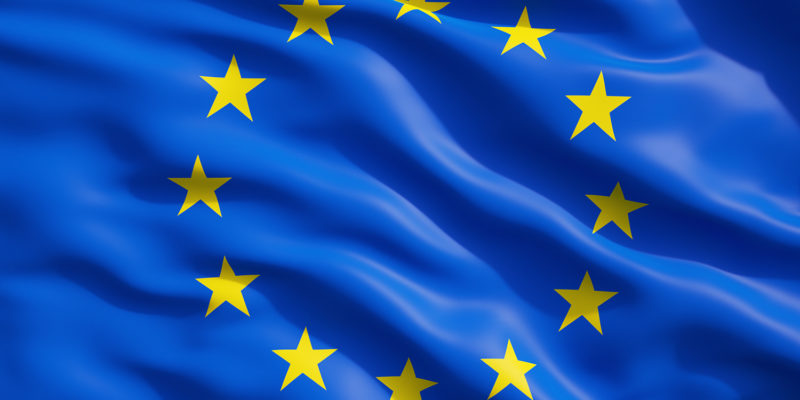Pharma CEOs Speak on the Fallout from Evolving US–EU Trade Policy
The European Federation of Pharmaceutical Industries and Associations, representing innovator drug companies in Europe, and Medicines for Europe, representing generics and biosimilars producers in Europe, speak out on the impact of a changing tariff scheme on the bio/pharma industry in the EU and propose action plans.
By Patricia Van Arnum, Editorial Director, DCAT, pvanarnum@dcat.org
EU-US trade policy takes another turn
Evolving US trade policy took another turn this week (April 9, 2025) with the Trump Administration announcing that it would place a 90-day pause (until July 9, 2025) on the implementation of so-called “reciprocal tariffs” on US trading partners that had been scheduled to take effect on April 9, 2025. Last week (April 2, 2025), the Trump Administration laid out a plan that imposed an individualized reciprocal higher tariff on the countries with which the United States has the largest trade deficits while continuing a10% baseline tariff on all countries. .
How the trade and tariff situation unfolds is of large financial importance to Europe overall and to the bio/pharmaceutical industry specifically. The US goods trade (exports plus imports) with the European Union (EU) totaled $975.9 billion in 2024, according to data from the Office of the US Trade Representative. Goods exports totaled $370.2 billion; goods imports totaled $605.8 billion. The US goods trade deficit with the EU was $235.6 billion in 2024. The US is the EU’s largest trading partner for medicinal and pharmaceutical products, according to information from Eurostat, the EU’s statistical and informational body. In 2023, EU exports of medicinal and pharmaceutical products to countries outside the EU reached EUR 277 billion ($290 billion), with the US accounting for approximately one-third or EUR 92 billion ($96 billion).
Both major segments of the industry–innovator drug companies and generics/biosimilars producers—issued statements this week (April 8, 2025, prior to the 90-day pause on reciporcal tariffs announced on April 9, 2025) to provide their positions with respect to the EU’s response on the tariff situation and the impact on the bio/pharma industry in Europe.
Their comments followed EU member states voting in favor on April 8, 2025, of the European Commission’s proposal to introduce trade countermeasures, which would have gone into effect on April 15,, 2025, for a range of goods against the United States, which the EU said was in response to an earlier (March 2025) decision by the US to impose tariffs on imports of steel and aluminum from the EU. The EU had also signaled that it would seek other trade countermeasures against the reciprocal tariffs imposed against the EU. The EU has placed those trade countermeasures on hold with the 90-day pause for reciprocal tariffs by the US on the EU and other countries as negotiations continue among all parties.
“We took note of the announcement by President Trump [referring to the 90-day pause on reciprocal tariffs],” said Ursula von der Leyen, President of the European Commission, in an April 9, 2025, statement. “We want to give negotiations a chance. While finalizing the adoption of the EU countermeasures that saw strong support from our Member States, we will put them on hold for 90 days. If negotiations are not satisfactory, our countermeasures will kick in. Preparatory work on further countermeasures continues. As I have said before, all options remain on the table.”
How the trade and tariff situation between the EU-US will play out is still to be seen, but the bio/pharmaceutical industry is emphasizing the harmful impact that escalating trade tensions could have on the industry and the need for the EU to continue to purse industrial and trade policies that improve the EU’s competitiveness.
EU innovator drug companies speak out
This week (April 8, 2025), the European Federation of Pharmaceutical Industries and Associations (EFPIA), representing innovator drug companies in Europe, raised concerns of EU industrial policy, along with trade policy, further shifting capital and R&D investments from the EU to the US.
“…CEOs of the research-based pharmaceutical industry issued a stark warning to President von der Leyen [Ursula von der Leyen, President of the European Commission] unless Europe delivers rapid, radical policy change, then pharmaceutical research, development and manufacturing is increasingly likely to be directed towards the US,” said EFPIA in an April 8, 2025, statement.
EFPIA underscored its position based on a survey of EFPIA member companies conducted in early April (April 2025), in which 18 large and medium-sized innovator companies responded, over the level of planned capital expenditures and R&D investments in the EU by the bio/pharmaceutical companies that would be at risk with an unfavorable trade position with the US. The survey identified that as much as 85% of capital expenditure investments of approximately EUR 50.6 billion ($57.1 billion) and as much as 50% of R&D expenditure of approximately EUR 52.6 billion ($59.2 billion) were potentially at risk out of a current combined total of EUR 164.8 billion ($185.6 billion) in investments planned for the period 2025–2029 in the 27 member states of the EU. Over the next three months, companies that responded to the survey estimate that a total of EUR 16.5 billion ($18.6 billion), approximately 10% of the total investment plans, is at risk.
“The US now leads Europe on every investor metric from availability of capital, intellectual property, speed of approval to rewards for innovation,” said EFPIA in its April 8, 2025, statement. “In addition to the uncertainty created by the threat of tariffs, there is little incentive to invest in the EU and significant drivers to relocate to the US.”
EFPIA is calling on EU policymakers to take “immediate action” in four main areas:
- Achieving a competitive EU market that attracts, values and rewards innovation in line with other economies at the forefront of patient care;
- Strengthening, rather than weakening, Europe’s intellectual property provisions;
- Adopting a world-leading regulatory framework conducive to innovation; and
- Ensuring policy coherence across environmental and chemical legislation to secure a resilient manufacturing and supply chain of medicines in Europe.
“Where innovation happens matters, it matters to patients, to healthcare systems, to the European economy and security,” said EFPIA in its statement. “Europe needs to make a serious commitment to invest in a world-class pharmaceutical ecosystem, or at best, risk being reduced to a consumer of other region’s innovation.”
EU generics and biosimilar producers speak out
Medicines for Europe, which represents generics and biosimilar producers in Europe, reported this week (April 8, 2025) that it and its delegation met with Ursula Von der Leyen, President of European Commission, for a strategic dialogue on how the European Commission can best support the pharmaceutical sector overall and amid the changing trade picture.
“Tariffs are a regressive and counterproductive and would disrupt global supply chains, cause shortages of critical and essential medicines and undermine patient access,” said Medicines for Europe, in an April 8, 2025, statement. “This is why advanced economies have agreed on World Trade Organisation (WTO) rules to exempt pharmaceuticals from tariffs.”
Medicines for Europe issued a five-step action plan that it is calling on EU policymakers to take to support the generics and biosimilars industry in Europe. “Following the meeting, Medicines for Europe calls on the EU and European Commission President Von der Leyen to focus on strengthening the EU manufacturing competitiveness as per our five-point plan for pharmaceuticals while remaining open to international trade and cooperation,” said Medicines for Europe in its April 8, 2025, statement. “We are committed to continuing this partnership and appreciate the outreach from the European Commission on this important matter.”
The five action areas by Medicines for Europe are outlined below.
1. Continue diplomatic efforts to prevent the imposition of tariffs on EU medicines and active pharmaceutical ingredients.
2. Review complex legislation that Medicines for Europe says “undermine[s] pharmaceutical activities in Europe and negatively affect[s] patient access and security of supply,” pointing to regulatory restrictions on substances used in manufacturing as well as the Urban Wastewater Treatment Directive. That directive requires producers of medicines and cosmetics to finance at least 80% of treatment to eliminate micropollutants from urban wastewater.
3. Accelerate industrial policies such as the Critical Medicines Act, which seeks to improve the availability, supply, and production of critical medicines within the EU, and the Biotech Act, which proposes targeted actions to boost biotechnology and biomanufacturing in the EU. Medicines for Europe says these measures, which are now proposed, will be necessary as state aid and tax deferments “to counter the effect of the competitiveness shock caused by potential tariffs.“
In March (March 2025), the European Commission proposed the Critical Medicines Act as a policy measure in line with the European Health Union, which seeks to ensure that all EU citizens have access to necessary medicines. The Critical Medicines Act is an industrial policy toolbox that complements the proposed reform of the EU’s pharmaceutical legislation and the enhanced role of the European Medicines Agency in managing drug shortages. It provides measures to address supply chain vulnerabilities for critical medicines and to reduce Europe’s dependency on single suppliers and third countries (i.e., non-EU countries) providing pharma ingredients and products). It also proposes measures to address market limitations faced by EU member states, whereby certain EU countries do not have access to medicines of common interest. Among the measures proposed under the Critical Medicines Act are means to facilitate investments for companies that increase EU manufacturing of critical medicines and incentives for supply chain diversification and resilience through public procurement practices of EU member states that support EU-based production of critical medicines.
4. Adopt the EU pharma legislation with balanced regulatory incentives that healthcare systems can afford and clear rules to allow Day-1 competition after patent expiry and accelerate digital transformation.
5. Build EU action on strategic autonomy, “championing EU solidarity over division and most importantly, prioritizing the access and security of medicines,” said Medicines for Europe in its statement.







